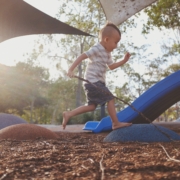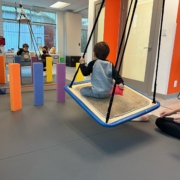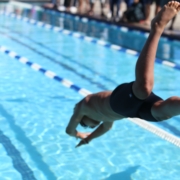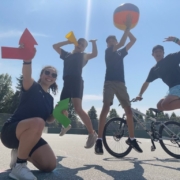As parents, we constantly strive to provide the best care and support for our children, ensuring their health and well-being in every way possible. When it comes to their active lifestyles and participation in sports or recreational activities, it’s essential to prioritize injury prevention. In this blog post, we want to shed light on the importance of pre-habilitation (pre-hab) and how it empowers parents in safeguarding their children’s health and promoting an active lifestyle.
Understanding Pre-habilitation for Kids:
Pre-habilitation, or pre-hab, is a proactive approach to injury prevention that focuses on preparing children’s bodies for physical activities. It involves addressing muscle imbalances, improving body awareness, and optimizing movement patterns. By integrating pre-habilitation strategies into our children’s routines, we can equip them with the tools to minimize the risk of injuries and support their physical development.
The Importance of Pre-habilitation for Kids:
- Building Strong Foundations: Pre-habilitation helps children develop a solid foundation of strength, flexibility, and coordination. By targeting muscle imbalances and addressing any weaknesses, we can ensure that their bodies are prepared for the demands of sports and physical activities. This foundation sets the stage for improved performance and reduces the risk of injuries resulting from poor mechanics or muscle strains.
- Enhancing Body Awareness: Children are constantly growing and discovering their bodies’ capabilities. Pre-habilitation enhances their body awareness, enabling them to understand their limits, recognize warning signs of discomfort, and make adjustments to prevent injuries. With improved body awareness, our little ones can move with confidence and participate in activities more safely.
- Nurturing a Lifelong Active Lifestyle: By instilling pre-habilitation practices in our children’s lives, we lay the foundation for a lifelong commitment to an active and healthy lifestyle. Teaching them about injury prevention and the importance of pre-hab empowers them to make conscious choices, prioritize their well-being, and stay active for years to come.
How PlayWorks Physio Supports Pre-habilitation:
At PlayWorks Physio, our specialized paediatric physiotherapy clinic, we are dedicated to supporting families in their journey of injury prevention and promoting healthy physical development for children. Our team of experienced physiotherapists is trained in pre-habilitation techniques specifically tailored for kids.
When you bring your child to PlayWorks Physio, we take a personalized approach to pre-habilitation, assessing their unique needs and designing individualized exercise programs. We work closely with you and your child to improve muscle imbalances, enhance body awareness, and provide guidance on injury prevention strategies. By partnering with us, you can ensure that your child is equipped with the tools to thrive in their activities while staying safe and injury-free.
Conclusion:
As parents, we play a vital role in safeguarding our children’s health and well-being. By understanding the importance of pre-habilitation and integrating it into their lives, we empower them to enjoy an active lifestyle while minimizing the risk of injuries. At PlayWorks Physio, we are here to support you and your child on this journey, providing specialized paediatric physiotherapy and expertise in pre-habilitation techniques.
Let’s prioritize injury prevention for kids, nurture their physical development, and empower them to lead healthy and active lives. Together, we can create a generation of strong, resilient, and injury-free kids.
If you have any questions or would like to learn more about pre-habilitation for your child, feel free to reach out to us at PlayWorks Physio. We’re here to support you every step of the way. If you would like to book an assessment, click here.
FAQ’s about Pre-Hab:
- How does pre-habilitation differ from rehabilitation? Pre-habilitation focuses on proactive measures taken before an injury occurs, with the goal of preventing injuries and optimizing physical function. It involves exercises, activities, and strategies to strengthen and prepare the body for potential stresses and challenges. Rehabilitation, on the other hand, is the process of restoring function and recovering from an injury or condition that has already occurred.
- At what age should pre-habilitation for injury prevention begin? Pre-habilitation can begin at any age, but it is especially beneficial to start during early childhood and continue through adolescence. As kids grow and engage in various physical activities, pre-habilitation helps promote proper movement patterns, muscle balance, and body awareness, setting a foundation for injury prevention throughout their developmental years.
- Can pre-habilitation help prevent specific types of injuries in kids? Yes, pre-habilitation can help prevent a wide range of injuries in kids. It focuses on strengthening the muscles, improving flexibility, enhancing coordination, and promoting proper movement mechanics. By addressing muscle imbalances, optimizing body mechanics, and enhancing overall physical fitness, pre-habilitation can reduce the risk of common injuries such as sprains, strains, overuse injuries, and musculoskeletal imbalances.
- Are there any specific precautions or considerations when implementing pre-habilitation for children? When implementing pre-habilitation for children, it is important to consider their age, developmental stage, individual abilities, and any specific health conditions or previous injuries. It is recommended to consult with a paediatric physiotherapist or healthcare professional who specializes in working with children to develop a personalized pre-habilitation program tailored to their specific needs and goals.
- Are there any signs or symptoms that indicate the need for pre-habilitation? Signs that may indicate the need for pre-habilitation include recurring aches or pains during or after physical activity, limited range of motion, muscle imbalances, poor coordination, frequent injuries, or participation in high-risk sports or activities. If a child demonstrates any of these signs or experiences difficulties in movement or physical performance, it may be beneficial to consider pre-habilitation as part of their injury prevention strategy.
- Can pre-habilitation be beneficial for children involved in both sports and non-sports activities? Absolutely! Pre-habilitation can benefit children engaged in both sports and non-sports activities. Whether it’s participating in organized sports, recreational activities, or simply engaging in regular physical play, pre-habilitation helps improve overall physical fitness, movement quality, and injury resilience. It promotes healthy movement patterns, enhances strength and coordination, and reduces the risk of injuries across various activities and daily movements.
Written by: Maegan Mak









